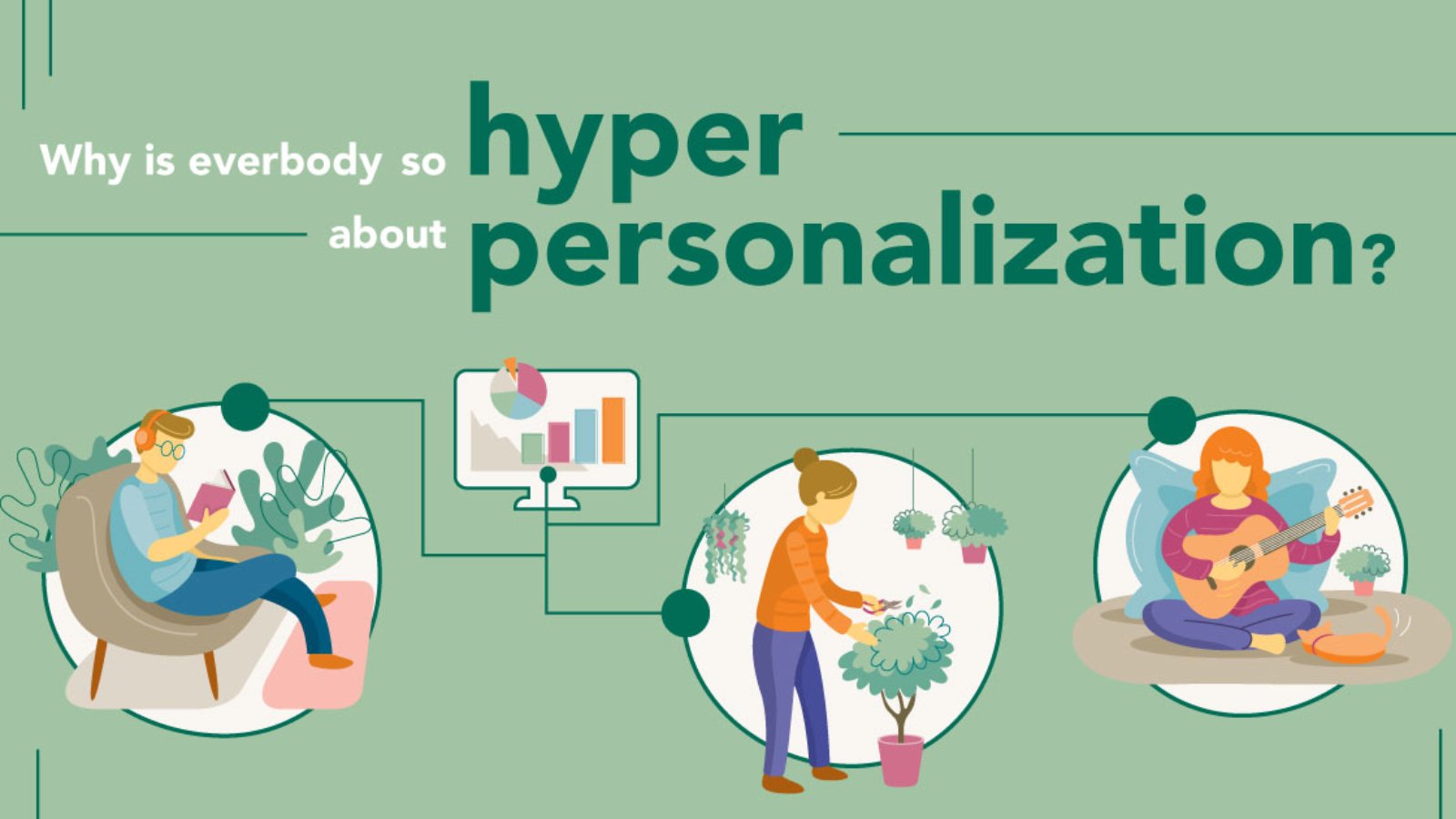Hyper Personalization in Marketing
Hyper-personalization in marketing is an advanced strategy that leverages data analytics, artificial intelligence (AI), and machine learning to deliver highly tailored and relevant content, products, and experiences to individual customers. Unlike traditional personalization, which might use basic customer information such as name and purchase history, hyper-personalization digs deeper into real-time data, including browsing behavior, social media activity, location, and even biometric data. This approach allows businesses to create unique customer profiles and anticipate individual needs and preferences with remarkable accuracy. By analyzing vast amounts of data, companies can send precisely targeted messages, offer personalized product recommendations, and create seamless, customized customer journeys. This not only enhances the customer experience by making interactions more relevant and engaging but also drives higher conversion rates, customer loyalty, and overall business growth. Hyper-personalization is particularly effective in digital marketing, where the ability to respond to customer behavior in real-time can significantly impact sales and brand perception.

What is hyper-personalization in marketing, and how does it differ from traditional personalization ?
Hyper-personalization in marketing is an advanced strategy that utilizes real-time data, artificial intelligence (AI), and machine learning to create highly customized and relevant content, products, and experiences for individual customers. Unlike traditional personalization, which might use basic information like a customer’s name or past purchase history, hyper-personalization dives deeper into various data sources such as browsing behavior, social media activity, location, and even biometric data. This comprehensive approach allows businesses to develop unique customer profiles and predict individual preferences and needs with great precision. For example, while traditional personalization might send a generic promotional email to a customer, hyper-personalization can send a customized message recommending products based on the customer’s recent online searches and purchasing habits. This level of specificity not only enhances the customer experience by providing highly relevant interactions but also significantly boosts conversion rates, customer loyalty, and overall business growth. Hyper-personalization is particularly powerful in the digital age, where the ability to respond to customer behavior in real-time can lead to increased sales and a stronger brand connection.
How does hyper-personalization in marketing improve the customer experience ?
Hyper-personalization in marketing significantly enhances the customer experience by making interactions more relevant, timely, and engaging. By leveraging real-time data and advanced analytics, businesses can understand individual customer preferences and behaviors at a granular level. This allows for the delivery of highly tailored content, product recommendations, and offers that resonate with each customer’s unique interests and needs. For instance, an e-commerce platform using hyper-personalization can suggest products that align with a customer’s browsing history and recent purchases, creating a seamless and intuitive shopping experience. Additionally, hyper-personalization can improve the timing and context of marketing messages, ensuring that customers receive the right information at the right moment, whether it’s through personalized emails, targeted ads, or in-app notifications. This not only increases the likelihood of conversion but also fosters a deeper emotional connection between the customer and the brand. Moreover, by anticipating and addressing individual needs proactively, businesses can enhance customer satisfaction and loyalty, ultimately leading to long-term retention and advocacy. The overall effect is a more satisfying and memorable customer journey, tailored to the unique characteristics of each individual.
What technologies are employed in hyper-personalization to deliver highly customized marketing experiences ?
Hyper-personalization relies on a combination of advanced technologies to gather, analyze, and act on vast amounts of customer data. Key technologies include artificial intelligence (AI) and machine learning, which are used to analyze complex datasets and identify patterns and trends in customer behavior. These technologies enable businesses to predict individual preferences and deliver personalized content in real-time. Data analytics platforms and customer relationship management (CRM) systems play a crucial role in collecting and managing customer data from various sources, such as browsing history, social media interactions, purchase records, and location data. Additionally, Internet of Things (IoT) devices and wearable technology can provide biometric and contextual data, further enriching the customer profiles used for hyper-personalization. Real-time data processing and big data technologies ensure that the vast amounts of information collected can be analyzed quickly and efficiently. Finally, marketing automation tools help execute personalized campaigns at scale, delivering customized messages through email, social media, mobile apps, and other digital channels. By integrating these technologies, businesses can create a seamless and dynamic personalization engine that continuously adapts to the evolving preferences and behaviors of their customers.
What are the main benefits of implementing hyper-personalization in marketing for businesses ?
Implementing hyper-personalization in marketing offers numerous benefits for businesses, significantly enhancing their ability to engage customers and drive growth. One of the primary advantages is the improvement in customer experience, as hyper-personalization allows businesses to deliver highly relevant and timely content, products, and offers that resonate with individual preferences and needs. This leads to increased customer satisfaction, loyalty, and retention. Hyper-personalization also boosts conversion rates by targeting customers with precisely tailored recommendations and promotions, thereby increasing the likelihood of purchases. Moreover, it enables businesses to optimize their marketing spend by focusing resources on high-impact, personalized interactions rather than generic campaigns, resulting in better return on investment (ROI). Additionally, hyper-personalization helps in building stronger customer relationships by fostering a sense of connection and understanding, which can turn customers into brand advocates. By leveraging data-driven insights, businesses can also gain a deeper understanding of market trends and customer behavior, informing strategic decisions and driving innovation. Ultimately, the comprehensive and dynamic nature of hyper-personalization positions businesses to stay competitive in a rapidly evolving digital landscape, enhancing their overall market presence and profitability.
What are the challenges businesses may encounter when implementing hyper-personalization in marketing ?
While hyper-personalization offers significant benefits, businesses may face several challenges when implementing this advanced marketing strategy. One of the primary challenges is data privacy and security. Collecting and using vast amounts of personal data necessitates stringent measures to protect customer information and comply with data protection regulations such as GDPR and CCPA. Failure to do so can result in legal consequences and damage to the brand’s reputation. Another challenge is the complexity and cost of the technology infrastructure required for hyper-personalization. Implementing AI, machine learning, and real-time data processing systems can be resource-intensive and may require significant investment in technology and skilled personnel. Additionally, ensuring data accuracy and integration from multiple sources can be difficult, as inconsistent or poor-quality data can undermine the effectiveness of personalization efforts. Businesses also need to strike a balance between personalization and customer comfort, avoiding over-intrusiveness that might make customers feel their privacy is being invaded. Finally, maintaining the agility to adapt personalization strategies based on changing customer behaviors and market conditions is essential but challenging, requiring continuous monitoring and optimization. Addressing these challenges is crucial for businesses to successfully leverage hyper-personalization and maximize its benefits.

Add a Comment